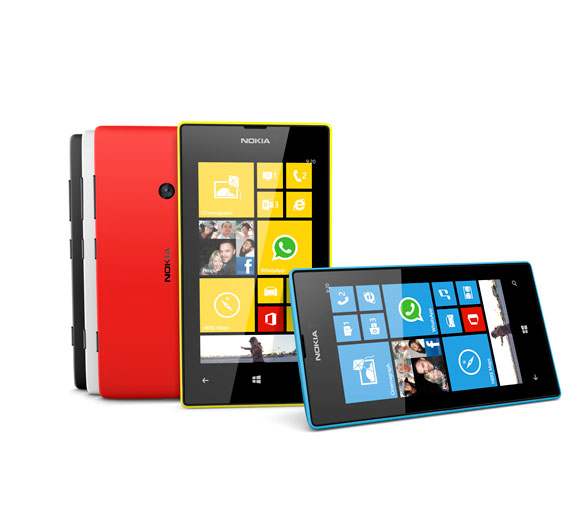With a struggling product line, shrinking PC sales, and a comical CEO search that seemed to lurch in three directions a day, Microsoft has become the punchline of every tech industry joke. Oh, how the geeky have fallen. As Steve Ballmer paddles away in a lifeboat made of $100 bills, newly-minted CEO Satya Nadella must right the company’s sinking ship and fix all the broken Windows. It’s easy (and popular) to predict further disaster for the once-proud tech titan. But quietly, Microsoft is doing several things well—better than we give it credit for.
Here are four things Microsoft still does well, and how it can capitalize going forward.
1. Mobile OS Design

The world hasn’t been fair to Windows Phone, a mobile OS with a design that’s fresh, tasteful, and functional. We forget just how innovative the metro-style interface was—and still is—which was flat before iOS and dynamic before Android’s home screen widgets became popular. We tend to dismiss Windows Phone in the face of its two most powerful rivals, but compare Microsoft’s mobile OS to the ghosts of Symbian, Palm, and Brew, or even to BlackBerry, who just last year realized we’d all moved on from 2005. It’s fun to tease Microsoft for stealing ideas, but Windows Phone deserves praise for its persistence and originality.
More importantly, everyday users love the Windows Phone interface. Yes, the experts’ top lists are filled with the latest iOS and Android hits, but when you look at users’ top-rated phones, Windows devices perform far better. Now if only more people would buy them…
Going forward: Flashy design alone can’t save a scant app ecosystem and paltry sales. Freshman CEO Nadella must find a way to attract mobile developers and win consumers raised on Android and iOS.
2. Office Suite Software
It’s kept Microsoft alive for the last five years, and it’s for good reason. Word, Excel, and PowerPoint are still industry standards, with deep functionality and an extremely loyal user base. Meanwhile, cloud-based Office 365 has produced solid revenue for the company over its first year.
Sure, they’ve got a variety of competitors, but each rival seems content to nibble off corners of the market rather than compete for the main course. Naturally, Apple has prettier software in Keynote and Numbers, but instead of ratcheting up features, they’ve been simplified in favor of inter-device compatibility. Casual users have turned to Google’s cloud-based documents, but let’s be honest: no one’s building revenue reports from scratch in Google Drive. Meanwhile, programmers, tech tinkerers, and Linux developers might swear by OpenOffice, but a well-meaning community of geeks simply can’t compete with Microsoft’s billion-dollar marketing campaigns.
Going forward: Nadella will need to reexamine the Microsoft Office licensing strategy. As it stands, support is sporadic on third-party mobile devices, and many non-Windows versions are half-baked. Microsoft may want to commit one way or the other: full support across multiple devices and operating systems, or Windows-only support to coax new users back to the Microsoft fold.
3. Gaming Consoles
It’s true: the PS4 has an early sales lead against the Xbox One (4.2 vs. 3.0 million through 2013). But this is a distraction. From its 2000 acquisition of Halo-developer Bungie to its present-day Xbox-TV integration, Microsoft has made sound game industry decisions and weathered all the inevitable setbacks. Since the first Xbox, the company has doubled-down on first-person shooters, improved its online infrastructure, and focused on living room functionality. The controller-free, motion-sensing Kinect lured mainstream players tired of Wii Sports, and the 2011 Skype acquisition improved communication clarity across online services. These were all classic Microsoft moves: a little boring, but businesslike and effective.
The video game purist might prefer Sony’s commitment to indie games, or Nintendo’s focus on core gameplay, but Microsoft has made the wider play for the mass-market of young adult U.S. males, and it’s paid off. It’s even won the branding war among American moms. “Stop playing Xbox,” they say, even when it’s a Wii U or PS4.
Going forward: As the console gaming industry evolves (dies?), Nadella needs to convince America that the Xbox is truly a living room feature, not simply a gaming device. If he can sell that concept, Microsoft will leapfrog Sony and recapture the lead.
4. Internet Explorer
Okay: that’s a joke.
4. Secrecy
For all the buzz about Apple “doubling down on secrecy,” Microsoft might actually be the more clandestine company. It kept the Surface undercover for almost all of its three-year development, and the CEO search was shrouded in a colorful, Windows 8-haze of misinformation until Nadella’s name was finally announced Tuesday morning. Granted, we don’t know what Microsoft is up to partly because neither does Microsoft. But while the tech press showers Apple and Google with rapid attention more invasive than that old, it-looks-like-you’re-writing-a-letter paper clip, Microsoft can quietly reinvent its mobile presence and build better consumer-facing products, all in semi-stealth mode.
Going forward: After the Nadella hype fades, the press will flock back to Apple, Google, and Amazon. Microsoft should enjoy the peace and quiet while it focuses on its 2014 priorities, like mobile and the cloud. The company should keep expectations low, then surprise us when the moment is right. A little time as an underdog might be just what Microsoft needs. Your move, Nadella.
This article was written for TIME by Ben Taylor of FindTheBest.
More Must-Reads from TIME
- Cybersecurity Experts Are Sounding the Alarm on DOGE
- Meet the 2025 Women of the Year
- The Harsh Truth About Disability Inclusion
- Why Do More Young Adults Have Cancer?
- Colman Domingo Leads With Radical Love
- How to Get Better at Doing Things Alone
- Michelle Zauner Stares Down the Darkness
Contact us at letters@time.com